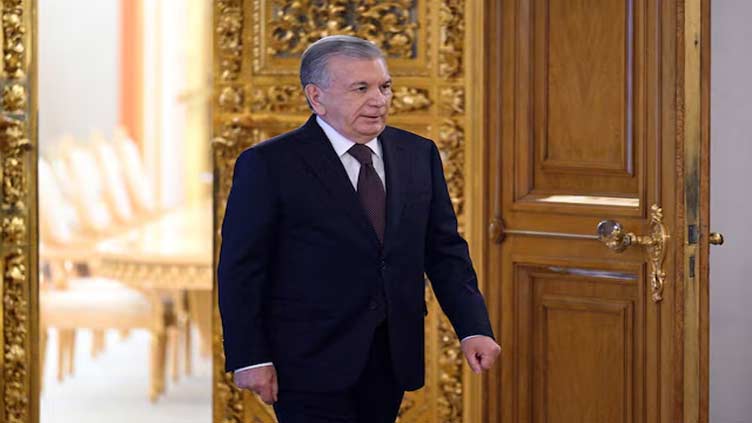Uzbekistan set to elect parliament loyal to president

World
President Mirziyoyev has run Central Asia's most populous nation since 2016
TASHKENT (Reuters) - Uzbekistan votes in a parliamentary election on Sunday that, in the absence of opposition parties, is certain to produce a legislature loyal to President Shavkat Mirziyoyev despite constitutional reforms bringing some procedural changes.
Mirziyoyev has run Central Asia's most populous nation, since 2016, winning broad popularity through liberal economic reforms and an easing of his predecessor's draconian restrictions on political, religious and media freedoms.
However, political power in the nation of 37 million remains concentrated in Mirziyoyev's hands and parliament rarely opposes laws drafted by his cabinet.
The main change introduced under the 2023 constitutional reform is a switch to a mixed election system, in which only half of the 150 deputies are elected by voting for political parties.
The other 75 candidates will be elected individually, though all of them have also been nominated by Uzbekistan's five registered parties, none of which oppose Mirziyoyev.
Instead, some parties focus on issues such as environment, justice or business climate.
"I voted for the Adolat (justice) social-democratic party," said Nazokat Solijonova, a 19-year-old student of the Interational Islamic University in Tashkent. "I want justice to be in our society and in every aspect of our lives."
Another student, Umugulsum Adkhamova, 20, said: "I voted for the Liberal Democratic Party because they promote private business and make it easy for everyone. I have plans to start my own business in the future."
More than 47% of voters had cast their ballots by 1 p.m. local time (0800 GMT), making the election valid, election authorities said. Preliminary results of the vote are expected on Monday.
One area where Uzbek parliament deputies have been more outspoken than government officials is over the former Soviet republic's relations with Russia.
For example, when Russian foreign ministry spokeswoman Maria Zakharova expressed concern about an incident in an Uzbek school last month in which a teacher hit a student who spoke Russian instead of Uzbek, Milliy Tiklanish (National Revival) party leader Alisher Qodirov told Moscow to mind its own business.
Uzbekistan has close economic ties with Russia and millions of Uzbek migrant labourers work there to provide for their families at home.
But Tashkent has remained neutral in the Russia-Ukraine conflict and has said it abides by Western sanctions against Moscow.


